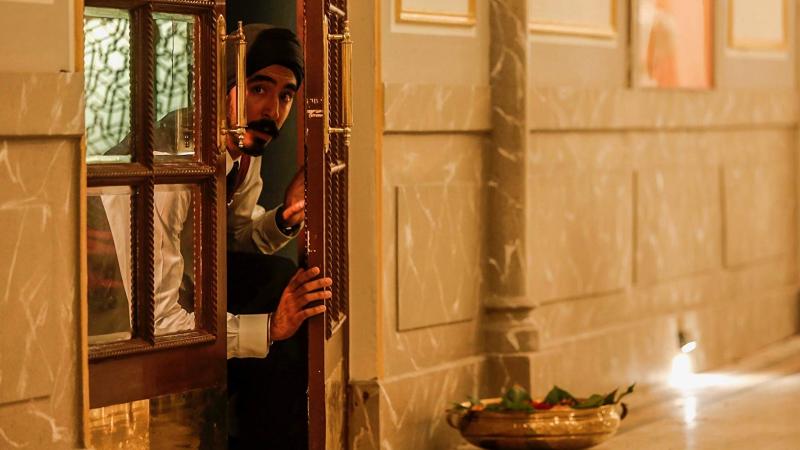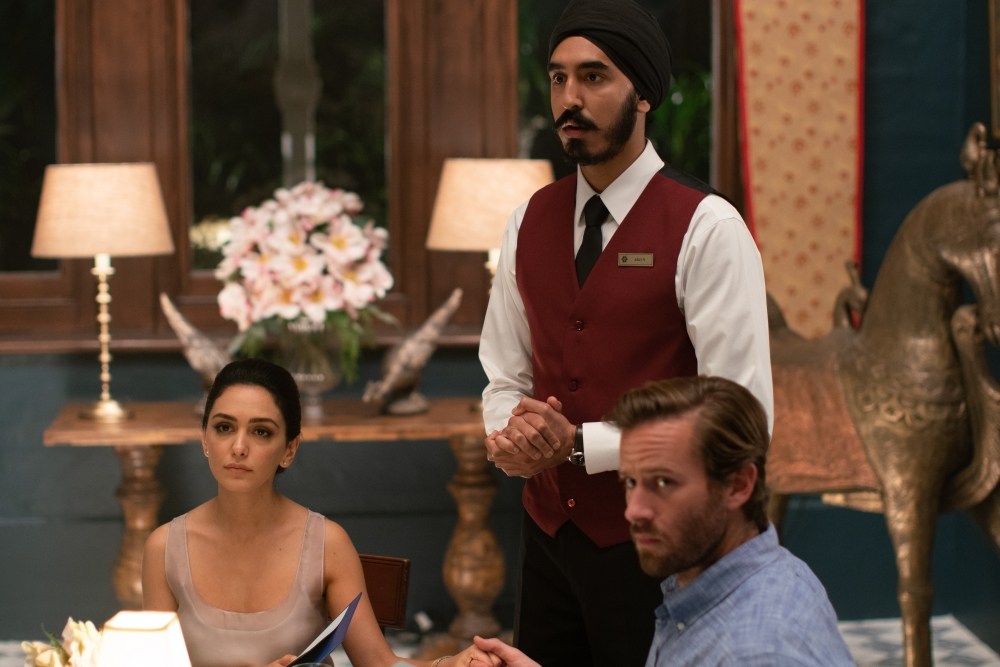Hotel Mumbai review – Dev Patel shines in harrowing real-life drama | reviews, news & interviews
Hotel Mumbai review – Dev Patel shines in harrowing real-life drama
Hotel Mumbai review – Dev Patel shines in harrowing real-life drama
The recreation of the 2008 terror attacks in Mumbai is a testament to heroic hotel staff who wouldn't stop taking care of their guests

Like recent films about the Anders Breivik terror attacks in Norway, Hotel Mumbai unavoidably raises questions of taste. Do audiences really need to be subjected to harrowing recreations of real-life suffering, when the events themselves are still fresh?
The 2008 assault on Mumbai lasted three nights and involved a number of targets. After covering the first, devastating attacks on a train station and a restaurant, director Anthony Maras enters the doors of the Taj Mahal Palace Hotel and more or less remains there for the duration, focussing on the hundreds of guests and staff trapped inside as heavily armed terrorists gunned down as many as they could find.
In an odd way it plays like a disaster movie, following a handful of primary characters as they sneak around the luxurious building, trying to survive. Among these are Armie Hammer and Nazanin Boniadi as a wealthy couple who are separated from their newborn child and nanny after the terrorists enter the hotel; Jason Isaacs (pictured below with Boniadi) as a Russian businessman with a rep as a troublesome guest and boor who reveals a more compassionate side as the night progresses; and Anupam Kher and Dev Patel as, respectively, head chef and waiter, whose courage and good sense will save a great many guests.  While all are exemplary, Patel is the stand-out with a performance of enormous dignity as a Sikh from an impoverished district,who never allows the guests’ ingratitude or racial intolerance to cloud his own behaviour.
While all are exemplary, Patel is the stand-out with a performance of enormous dignity as a Sikh from an impoverished district,who never allows the guests’ ingratitude or racial intolerance to cloud his own behaviour.
Maras may deny us a political framework and any investigation as to why the response of India’s police and military was so tardy, but he doesn’t ignore the deep class divide of those suddenly endangered together, or the irony at the heart of the hotel’s tragic experience. Half of the people killed there were staff who stayed behind to take care of guests – maintaining their maxim that “the guest is god” to the bitter end.
As for their tormenters, the Islamic militants from Pakistan are given minimal shading, but enough to suggest in these very young men a complex mixture of commitment, naivete and exploitation. Their brutality makes it hard to sympathise.
The orchestration of the action inside the rooms, halls, corridors and service areas of the hotel is masterful, the tension unrelenting. The film would have benefitted from more context and less savagery, but there’s no denying its accomplishment as a heart-in-mouth drama that never loses its grip, nor its ability to disturb and move in equal measure.
The future of Arts Journalism
You can stop theartsdesk.com closing!
We urgently need financing to survive. Our fundraising drive has thus far raised £49,000 but we need to reach £100,000 or we will be forced to close. Please contribute here: https://gofund.me/c3f6033d
And if you can forward this information to anyone who might assist, we’d be grateful.

Subscribe to theartsdesk.com
Thank you for continuing to read our work on theartsdesk.com. For unlimited access to every article in its entirety, including our archive of more than 15,000 pieces, we're asking for £5 per month or £40 per year. We feel it's a very good deal, and hope you do too.
To take a subscription now simply click here.
And if you're looking for that extra gift for a friend or family member, why not treat them to a theartsdesk.com gift subscription?
more Film
 Frankenstein review - the Prometheus of the charnel house
Guillermo del Toro is fitfully inspired, but often lost in long-held ambitions
Frankenstein review - the Prometheus of the charnel house
Guillermo del Toro is fitfully inspired, but often lost in long-held ambitions
 London Film Festival 2025 - a Korean masterclass in black comedy and a Camus classic effectively realised
New films from Park Chan-wook, Gianfranco Rosi, François Ozon, Ildikó Enyedi and more
London Film Festival 2025 - a Korean masterclass in black comedy and a Camus classic effectively realised
New films from Park Chan-wook, Gianfranco Rosi, François Ozon, Ildikó Enyedi and more
 After the Hunt review - muddled #MeToo provocation
Julia Roberts excels despite misfiring drama
After the Hunt review - muddled #MeToo provocation
Julia Roberts excels despite misfiring drama
 London Film Festival 2025 - Bradley Cooper channels John Bishop, the Boss goes to Nebraska, and a French pandemic
... not to mention Kristen Stewart's directing debut and a punchy prison drama
London Film Festival 2025 - Bradley Cooper channels John Bishop, the Boss goes to Nebraska, and a French pandemic
... not to mention Kristen Stewart's directing debut and a punchy prison drama
 Ballad of a Small Player review - Colin Farrell's all in as a gambler down on his luck
Conclave director Edward Berger swaps the Vatican for Asia's sin city
Ballad of a Small Player review - Colin Farrell's all in as a gambler down on his luck
Conclave director Edward Berger swaps the Vatican for Asia's sin city
 London Film Festival 2025 - from paranoia in Brazil and Iran, to light relief in New York and Tuscany
'Jay Kelly' disappoints, 'It Was Just an Accident' doesn't
London Film Festival 2025 - from paranoia in Brazil and Iran, to light relief in New York and Tuscany
'Jay Kelly' disappoints, 'It Was Just an Accident' doesn't
 Iron Ladies review - working-class heroines of the Miners' Strike
Documentary salutes the staunch women who fought Thatcher's pit closures
Iron Ladies review - working-class heroines of the Miners' Strike
Documentary salutes the staunch women who fought Thatcher's pit closures
 Blu-ray: The Man in the White Suit
Ealing Studios' prescient black comedy, as sharp as ever
Blu-ray: The Man in the White Suit
Ealing Studios' prescient black comedy, as sharp as ever
 The Woman in Cabin 10 review - Scandi noir meets Agatha Christie on a superyacht
Reason goes overboard on a seagoing mystery thriller
The Woman in Cabin 10 review - Scandi noir meets Agatha Christie on a superyacht
Reason goes overboard on a seagoing mystery thriller
 London Film Festival 2025 - crime, punishment, pop stars and shrinks
Daniel Craig investigates, Jodie Foster speaks French and Colin Farrell has a gambling habit
London Film Festival 2025 - crime, punishment, pop stars and shrinks
Daniel Craig investigates, Jodie Foster speaks French and Colin Farrell has a gambling habit
 I Swear review - taking stock of Tourette's
A sharp and moving tale of cuss-words and tics
I Swear review - taking stock of Tourette's
A sharp and moving tale of cuss-words and tics

Add comment